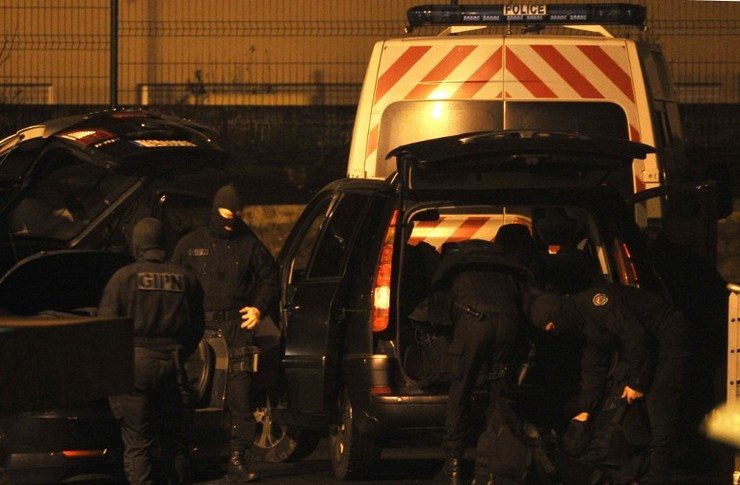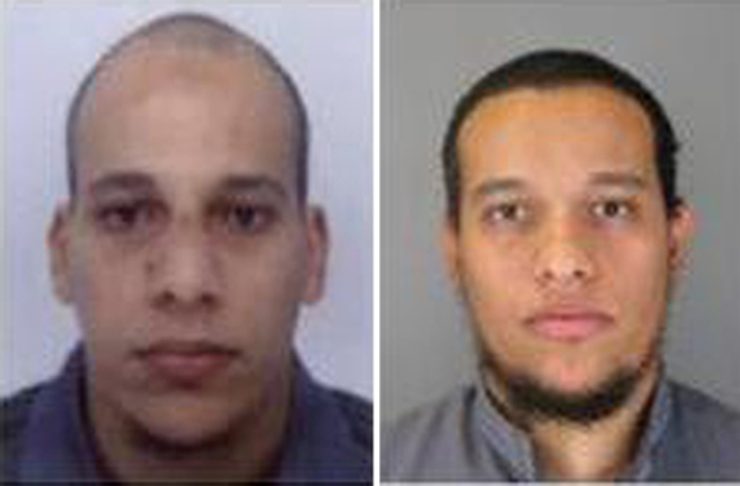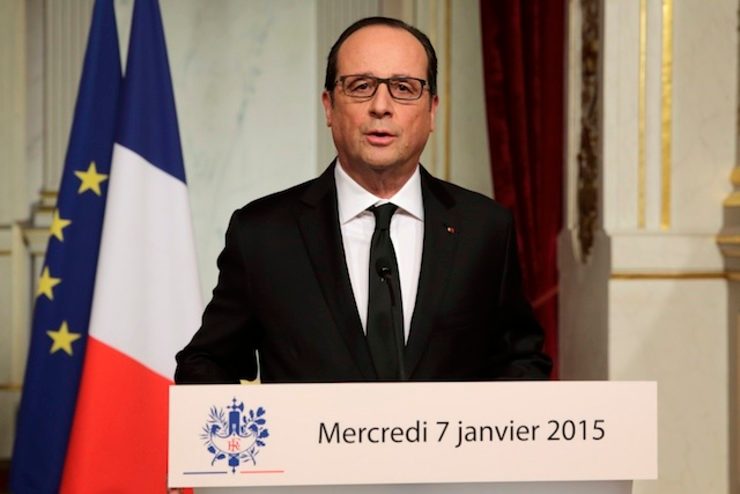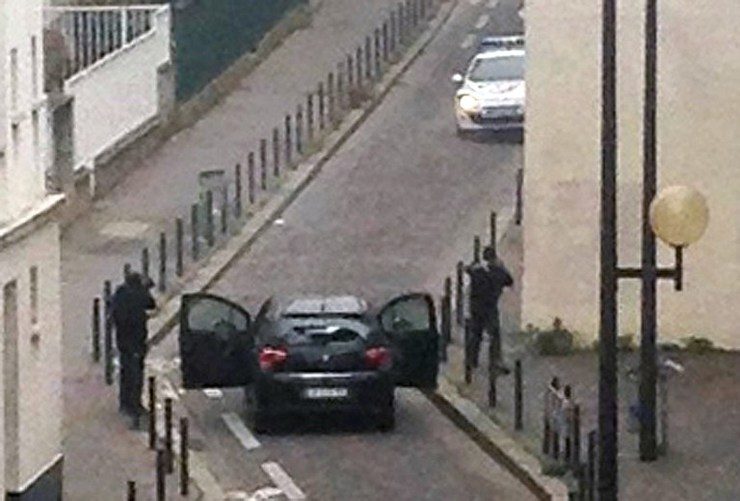SUMMARY
This is AI generated summarization, which may have errors. For context, always refer to the full article.

PARIS, France (4th UPDATE) – A huge manhunt for two brothers suspected of massacring 12 people in an Islamist attack at a satirical weekly zeroed in on a northern town Thursday, January 8, after the discovery of one of the getaway cars.
As thousands of police tightened their net, the country marked a rare national day of mourning for Wednesday’s bloodbath at Charlie Hebdo magazine in Paris, the worst terrorist attack in France for half a century.
The discovery of the car, abandoned in the northern town of Villers-Cotterets, was a breakthrough in the frantic police hunt.
Earlier reports said that the two fugitives, still armed, had been spotted at a petrol station in the same area.
A source close to the case also said that Molotov cocktails and jihadist-style flags had been discovered in another vehicle used by the attackers that was abandoned in Paris soon after Wednesday’s assault.
With emotions running high, bells tolled across France at midday, public transport stopped and people gathered outside the headquarters of Charlie Hebdo in the pouring rain, holding aloft banners reading “Je Suis Charlie” (I am Charlie).
Thousands of people gathered in the streets to mark a minute of silence and television footage showed children at a Muslim school in the northern city of Lille holding up sheets of paper emblazoned “not in my name”.
Across the world, crowds also gathered from Moscow to Washington under the banner “I am Charlie” to show support for the controversial magazine, which had angered Muslims by repeatedly lampooning the Prophet Mohammed and was seen by supporters as an emblem of free speech.
As police chased the gunmen, several incidents rocked the jittery nation, although it was not clear whether they were linked to Wednesday’s attack.
Just south of Paris, a man shot dead a policewoman and wounded a city employee with an automatic rifle — an act that prosecutors said they were treating as terrorism.
There was an explosion at a kebab shop in eastern France, with no casualties immediately reported. And two Muslim places of worship were also fired at in the wake of Wednesday’s attacks, prosecutors said.
Declaring Thursday a national day of mourning — only the fifth in the last 50 years — President Francois Hollande called the Charlie Hebdo bloodbath “an act of exceptional barbarity”.
‘Armed and dangerous’
National television ran constant live coverage of the manhunt for the masked, black-clad gunmen, who shouted “Allahu akbar” (“God is greatest”) while killing some of France’s most outspoken journalists, as well as two policemen.
Arrest warrants were issued for Cherif Kouachi, 32, a known jihadist convicted in 2008 for involvement in a network sending fighters to Iraq, and his 34-year-old brother Said. Both were born in Paris and are French nationals of Algerian origin.

The two men were likely to be “armed and dangerous”, authorities warned.
Interior Minister Bernard Cazeneuve said seven other people had been detained in the hunt for the brothers.
Prime Minister Manuel Valls, meanwhile, told French radio the two suspects were known to intelligence services and were “no doubt” being tracked before Wednesday’s attack.
Police were using forensic evidence and an ID car found in a car abandoned by the gunmen after the attack.
Mourad Hamyd, an 18-year-old suspected of being an accomplice in the attack, handed himself in, with police sources saying he had seen his name “circulating on social media”.
‘Nothing can divide us’
Hollande ordered flags to fly at half-mast for three days in France and convened an emergency cabinet meeting.
“Nothing can divide us, nothing should separate us. Freedom will always be stronger than barbarity,” said the president, calling for “national unity”.
As a sign of this unity, Hollande invited arch-rival and opposition leader Nicolas Sarkozy to the Elysee Palace, his first visit since losing power in 2012.
A massive rally for national unity is planned for Sunday.

Even before the attack, France, home to Europe’s biggest Muslim population, was on high alert like many countries that have seen citizens leave to fight alongside the radical Islamic State group in Iraq and Syria.
France’s main Islamic groups urged Muslims across the country to observe the minute of silence and for imams to condemn terrorism.
But Parisians battled to come to terms with the violence.
Herve Roch, father of two children aged nine and four, said: “You have to explain what happened (to the children). We told them that evil people came to do bad things and the police would catch them.”
“I’m an old woman. I lived through the occupation. France needs to wake up so we still have freedom of thought,” said Monique Valton, 81.
‘Abominable, never justified’
US President Barack Obama led the global condemnation of what he called a “cowardly, evil” assault.
Meanwhile, cartoonists worldwide reacted as they know best, composing biting satirical drawings against what editorialists said was an attack on the foundations of democracy.
Among the cartoons that went viral online was one by Australia’s David Pope: a picture of a gunman with a smoking rifle standing over a body, bearing the caption “He drew first”.
France’s media erupted in fury.

Business daily Les Echos urged people to face up to “barbarism”, publishing the last cartoon written by one of those killed in the attack.
“The hooded bastards declared war on France, on our democracy, on our values,” the paper said in an editorial.
Charlie Hebdo will come out next week with a print-run of one million despite the decimation of its staff, one of the magazine’s columnists said. – Rappler.com
Add a comment
How does this make you feel?
There are no comments yet. Add your comment to start the conversation.